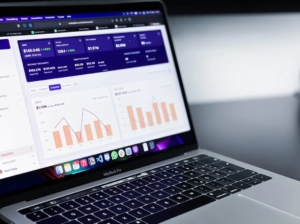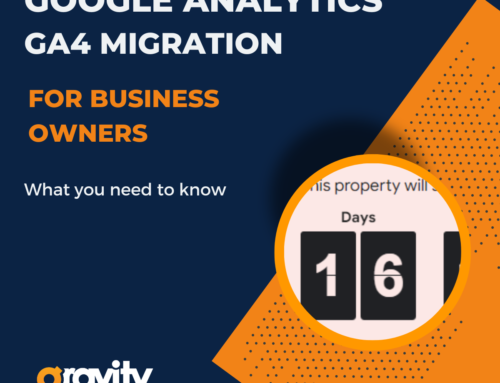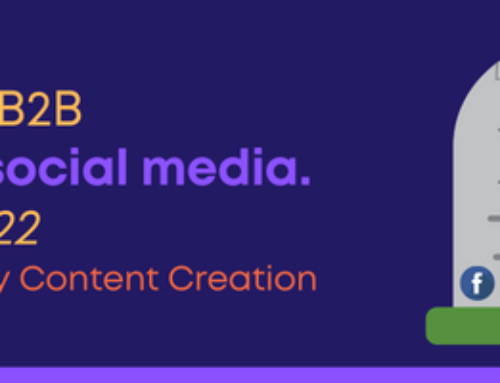Digital marketing tools come in many different shapes and sizes but they have one thing in common: they use data to streamline, analyze, and improve a marketing program. Digital marketing tools also have one wonderful perk for the small and medium businesses out there – most are extremely affordable, if not free.
By now your company’s business goals for 2022 are either set or in motion. Your budgets are in place. And you’ve skimmed industry trend articles to get a tentative feel for what’s in store. If you’re getting ready to launch your first marketing campaign of 2022, don’t do it without these tools in place.
Why? Because you can’t manage what you don’t measure. For a marketer, a lack of measurement means you won’t be able to track a lead back to its original source or know which pages prospects are visiting on your website. For a business owner, a lack of measurement means you have no way of knowing if and how a marketing program is driving value.
Here’s a round-up of the tools you need at every stage of the buying process. We’ve included links to Gravity Marketing’s favorites to help get you started.
Driving Traffic to Your Website
Every sales funnel starts at a place where your target audience hangs out, with the goal of driving them over to your website for more information. Pay-per-click advertising on each channel – from search engines and social media websites to influential media publications and influencer blogs – allows you to feature your business. But don’t just place an ad and hope for the best. Take advantage of any and every data detail the advertising platform is willing to give. This will help you determine if your ads are running successfully (typically indicated by impressions, clicks, and cost per click), and if they are reaching the right audience (typically indicated conversions on your website).
Gravity recommends Google Ads, Facebook/Instagram Ads, and LinkedIn Ads for B2B companies and B2C companies alike. WordStream is a great resource for best practices and offers a free Google Ads Performance Grader.
Social media posting is also important for companies to cultivate communities of prospects, customers, and partners. Promote articles, specials, and photo galleries on social media that take users to your website in order to view. Social media management tools like Hootsuite, Zoho Social, and Sprout Social help you organize topics, schedule posts in advance, monitor hashtags, topics, and companies to more efficiently listen to social chatter that pertains to you, and create reports that easily help you analyze and improve.
Understanding Web Visitor Behavior
How many visitors are coming to your website every month? How are they getting there? And what pages are they visiting most? It is very difficult to draw any conclusions without being able to analyze what visitors do once they come to your website. The goal of driving website traffic is to have an unknown visitor become known by converting – they fill out a form for a free download, register for an event, or make a purchase. Once you know who your website visitors are, you can communicate with them directly.
Many tools are available for understanding what visitors are doing once on your website – some even alert you when a new visitor has arrived in the case you would like to engage in a webchat with them. There are heat maps to track behavior on a page and user flows to see the breadcrumbs of web page visits. All of this information is helpful in figuring out how to improve web copy, page design, and overall user experience. The better the experience, the more conversions you will get.
Gravity recommends Google Analytics for viewing website data, although third-party providers like SEM Rush can offer insights to traffic as well. Always utilize advertising integrations (which require adding code snippets to the backend of your website) so you can track traffic and conversions back to specific ads: Google Tag Manager, Facebook Pixel, LinkedIn Insight Tag.
Communicating with Contacts
Website conversion should be considered the beginning of a long, mutually beneficial relationship. When you store all web leads and customer contact information in a central database, you can add information about each contact that helps you segment them in the future, such as stage in the buying process, industry, location, title, services needed, and company size. When combined with a list of your existing customers and prospects, this database can be used to understand actual customers, not just what you assume about your target audience.
A customer database is also crucial for consistent communication – stay top of mind with your contacts by providing a monthly ePublication with thought leadership content, sales eBlasts, or a chain of emails customized for a specific segment. When you focus your message on bringing value to the recipient, there are endless creative ways to grow the relationship – before and after a sale.
Gravity Marketing is a certified Zoho Partner. We recommend using Zoho CRM to maintain a database of leads, contacts, and business deals. CRM integrates with other Zoho applications such as Zoho Forms for web forms and Sales IQ for website visitor data. Individual and drip emails can be sent through Zoho CRM, but Zoho Campaigns is a great way to sent mass email campaigns in colorful HTML templates.
When possible, email content should link back to your website so all contacts – customers, prospects, and partners – stay informed about your capabilities, products, and services.
For more tips on digital marketing for business owners, check out our recent webinar, 5 Marketing Mistakes SMBs Make, register for our monthly Zoho User Session, or download one of our free tools. Feel free to contact us directly as well. We hope your marketing dreams come to fruition in 2022!









